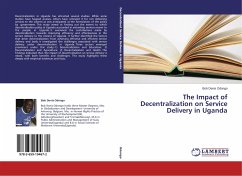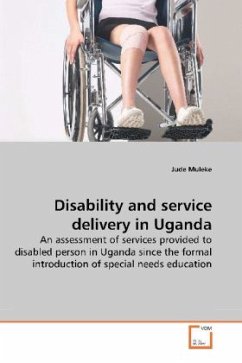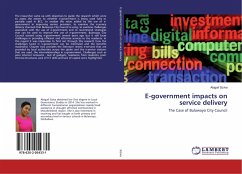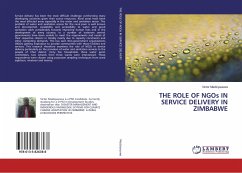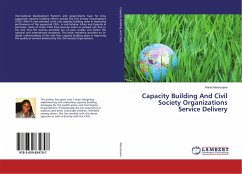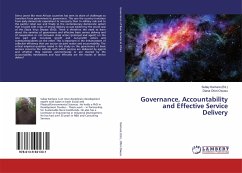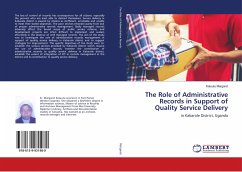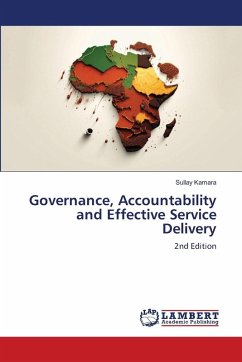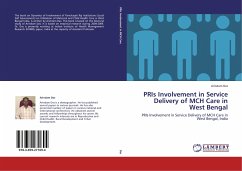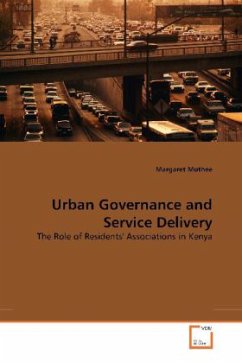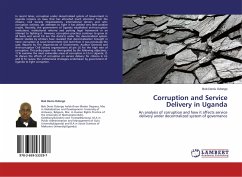
Corruption and Service Delivery in Uganda
An analysis of corruption and how it affects service delivery under decentralized system of governance
Versandkostenfrei!
Versandfertig in 6-10 Tagen
27,99 €
inkl. MwSt.

PAYBACK Punkte
14 °P sammeln!
In recent times, corruption under decentralised system of Government in Uganda remains an issue that has attracted much attention from the citizens, Civil Society Organizations, international donors and anti-corruption activists, yet attempts to fight it has yielded very little positive results. Recently, the government of Uganda established anti-corruption institutions, institutional reforms and putting legal framework in an attempt to fighting it. However, corruption practices continue to grow at all levels and worst hit are the districts under the decentralized system. Recent studies by sch...
In recent times, corruption under decentralised system of Government in Uganda remains an issue that has attracted much attention from the citizens, Civil Society Organizations, international donors and anti-corruption activists, yet attempts to fight it has yielded very little positive results. Recently, the government of Uganda established anti-corruption institutions, institutional reforms and putting legal framework in an attempt to fighting it. However, corruption practices continue to grow at all levels and worst hit are the districts under the decentralized system. Recent studies by scholars have revealed that decentralization brought in more corruption at Local Government (LG) level than it was previously the case. Reports by The Inspectorate of Government, Auditor Generals and Anti-corruption Civil Society organizations all pin LG for the high rate of corruption. This policy paper was then guided by the following objectives;-1) To examine the most vulnerable areas of corruption in LG in Uganda; 2) To discuss the effects of corruption on service delivery for citizens in LG and 3) To review the institutional strategies undertaken by government of Uganda to fight corruption.



